- Over 1 million successful rentals
Car Hire Israel
Save time and money. We compare the offers of car rental companies in Israel on your behalf.
- Free cancellation Up to 48 hours prior to the scheduled pick up time
- Best price guarantee Have you found a better price? Let us know and we will make you a better offer.
- 24000+ pick-up locations Locations around the world
Compare Car Hire
Carrentals.co.uk offers simple and straightforward car hire comparison services. We don't add a penny to your quotes!
Car rental offers in Israel
Whether you're looking for a small rental car or a station wagon for the entire family, we will always have a suitable vehicle for the lowest price. Below are some examples from our selection in Israel.

-
Budget From£ 18 /day -
Alamo From£ 19 /day -
Enterprise From£ 20 /day

-
Enterprise From£ 20 /day -
Hertz From£ 27 /day

-
Avis From£ 28 /day

-
Europcar From£ 23 /day

-
Europcar From£ 23 /day

-
Avis From£ 24 /day -
Hertz From£ 32 /day

-
Avis From£ 27 /day -
Alamo From£ 34 /day -
Enterprise From£ 36 /day

-
Alamo From£ 20 /day

-
Budget From£ 20 /day -
Alamo From£ 22 /day -
Enterprise From£ 23 /day

-
Avis From£ 32 /day

-
Budget From£ 21 /day -
Avis From£ 28 /day

-
Budget From£ 21 /day -
Europcar From£ 24 /day -
Sixt From£ 26 /day

-
Hertz From£ 35 /day

-
Alamo From£ 21 /day -
Enterprise From£ 22 /day -
Avis From£ 31 /day

-
Thrifty From£ 23 /day

-
Hertz From£ 40 /day

-
Budget From£ 19 /day

-
Budget From£ 21 /day -
Dollar Rent a Car From£ 28 /day -
Hertz From£ 29 /day

-
Avis From£ 35 /day

-
Sixt From£ 26 /day

-
Alamo From£ 26 /day -
Enterprise From£ 27 /day -
Budget From£ 27 /day

-
Hertz From£ 42 /day

-
Thrifty From£ 28 /day

-
Dollar Rent a Car From£ 29 /day -
Hertz From£ 29 /day -
Avis From£ 32 /day

-
Hertz From£ 34 /day -
Avis From£ 36 /day

-
Budget From£ 28 /day -
Sixt From£ 37 /day

-
Alamo From£ 29 /day -
Enterprise From£ 30 /day -
Dollar Rent a Car From£ 36 /day

-
Avis From£ 42 /day

-
Budget From£ 30 /day

-
Alamo From£ 30 /day -
Enterprise From£ 31 /day

-
Avis From£ 45 /day

-
Budget From£ 31 /day -
Hertz From£ 35 /day

-
Thrifty From£ 33 /day -
Hertz From£ 43 /day

-
Hertz From£ 48 /day

-
Budget From£ 32 /day -
Thrifty From£ 48 /day

-
Alamo From£ 39 /day -
Enterprise From£ 40 /day -
Hertz From£ 44 /day

-
Hertz From£ 59 /day

-
Thrifty From£ 40 /day

-
Hertz From£ 42 /day

-
Avis From£ 60 /day

-
Avis From£ 45 /day

-
Hertz From£ 51 /day

-
Avis From£ 72 /day

-
Hertz From£ 54 /day

-
Hertz From£ 54 /day

-
Hertz From£ 78 /day

-
Hertz From£ 56 /day -
Sixt From£ 85 /day

-
Hertz From£ 66 /day

-
Hertz From£ 71 /day -
Sixt From£ 84 /day

-
Sixt From£ 77 /day

-
Avis From£ 83 /day

-
Avis From£ 85 /day

-
Hertz From£ 42 /day

-
Hertz From£ 53 /day

-
Avis From£ 117 /day

-
Europcar From£ 66 /day

-
Hertz From£ 90 /day -
Avis From£ 115 /day

-
Avis From£ 150 /day

-
Hertz From£ 103 /day

-
Hertz From£ 130 /day

-
Alamo From£ 136 /day -
Enterprise From£ 138 /day

-
Hertz From£ 231 /day

-
Hertz From£ 103 /day -
Europcar From£ 127 /day

-
Budget From£ 109 /day

-
Hertz From£ 110 /day

-
Europcar From£ 116 /day

-
Avis From£ 134 /day

-
Dollar Rent a Car From£ 29 /day -
Hertz From£ 29 /day -
Avis From£ 33 /day

-
Alamo From£ 36 /day -
Enterprise From£ 37 /day

-
Avis From£ 53 /day

-
Hertz From£ 37 /day -
Budget From£ 38 /day -
Avis From£ 47 /day

-
Avis From£ 39 /day

-
Hertz From£ 57 /day

-
Hertz From£ 40 /day -
Avis From£ 53 /day

-
Hertz From£ 41 /day -
Avis From£ 46 /day

-
Avis From£ 60 /day

-
Alamo From£ 53 /day -
Enterprise From£ 53 /day
Popular cities in Israel
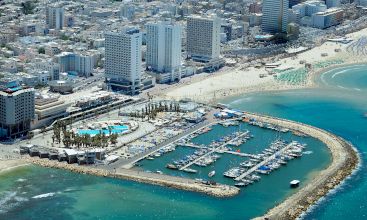
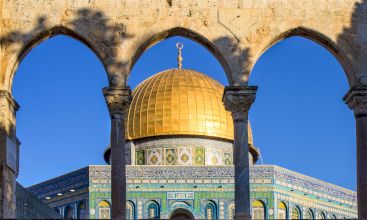
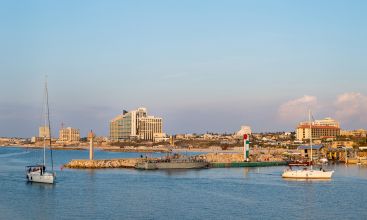
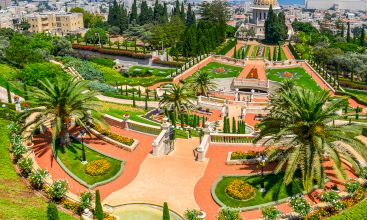
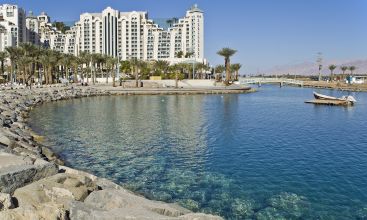

When to book a rental car in Israel
Israel - When is the most affordable time to rent a mini class car?
At this destination (Israel), June is the most affordable time to rent a mini class car with an average daily rate of
Israel - When is the most affordable time to rent a economy class car?
At this destination (Israel), June is the most affordable time to rent a economy class car with an average daily rate of
Israel - When is the most affordable time to rent a compact class car?
At this destination (Israel), June is the most affordable time to rent a compact class car with an average daily rate of
Israel - When is the most affordable time to rent an intermediate class car?
At this destination (Israel), June is the most affordable time to rent a intermediate class car with an average daily rate of
Israel - When is the most affordable time to rent a standard class car?
At this destination (Israel), June is the most affordable time to rent a standard class car with an average daily rate of
Israel - When is the most affordable time to rent a full-size car?
At this destination (Israel), June is the most affordable time to rent a full-size class car with an average daily rate of
Israel - When is the most affordable time to rent a luxury car?
At this destination (Israel), June is the most affordable time to rent a luxury class car with an average daily rate of
Israel - When is the most affordable time to rent a station wagon?
At this destination (Israel), June is the most affordable time to rent a station wagon with an average daily rate of
Israel - When is the most affordable time to rent a SUV?
At this destination (Israel), March is the most affordable time to rent an SUV with an average daily rate of
Israel - When is the most affordable time to rent a MPV?
At this destination (Israel), June is the most affordable time to rent an mpv with an average daily rate of
Israel - When is the most affordable time to rent a minivan?
At this destination (Israel), June is the most affordable time to rent a minibus with an average daily rate of
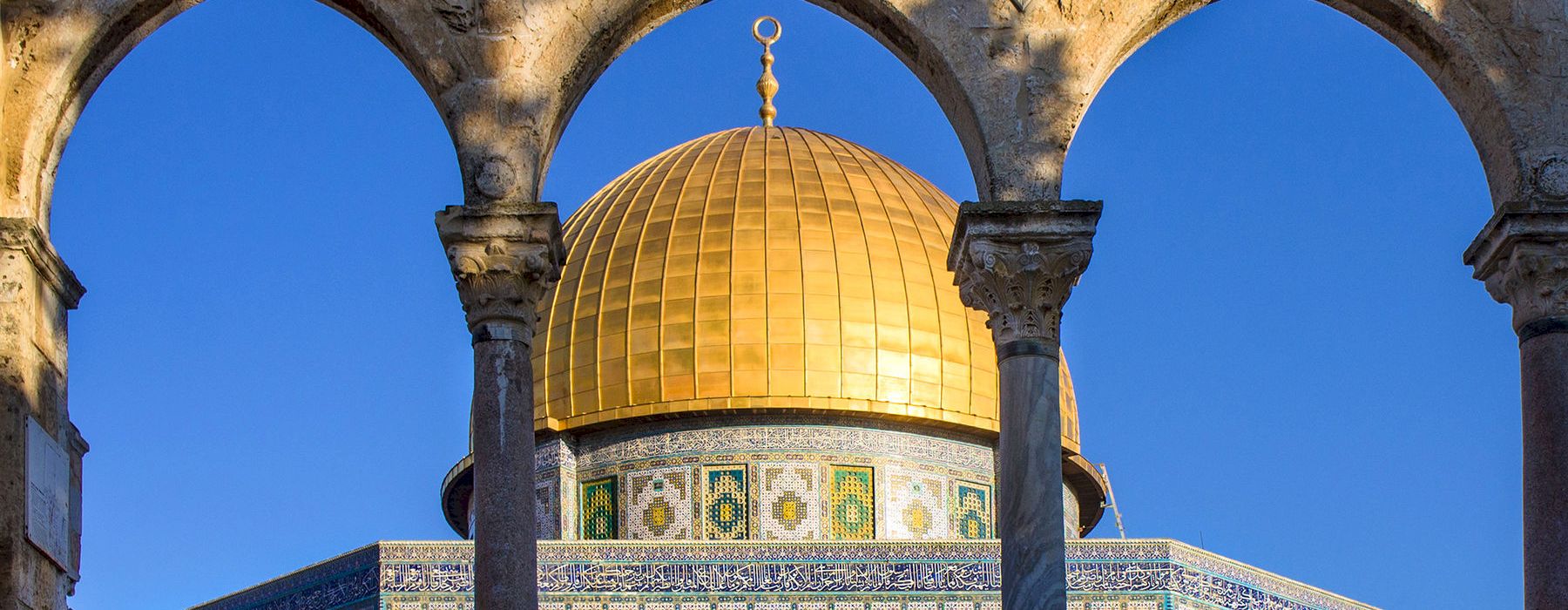
Israel Guide
Israel is best explored by rental car. Carrentals.co.uk has over 18 pick-up locations in Israel. This means there is always a pick-up location close to your destination.
Most popular car hire locations in Israel
Driving
Israel gets a bad rap but has lots of highlights and quality attractions. It boasts Mediterranean beaches, some of the most important historic sites of anywhere and the buzzing main centre of Tel Aviv. By car visitors can explore from the depths of the Dead Sea to the Heights of Golan and all the history in between.
Driving Tips for Israel
The road network is well developed, with motorways and main routes linking cities. Signage is clear and in the Latin, as well as the Hebrew, alphabet. The carrying of a reflective vest is mandatory, as is the use of dipped headlights during the day in winter.
Driving licences: UK visitors can drive here with their UK licence if they’ve held it for at least six months and it has a photo. The old style licences (without photo) should be accompanied by an International Driving Permit (IDP). Rental firms may want to see an IDP in any case.
Which side does Israel drive on: the right.
Speed limits:
Motorways: 68mph (110kph)
Major roads: 50-56mph (80-90kph)
Local roads: 50mph (80kph)
Built-up areas: 31mph (50kph)
Alcohol limits: less tolerant than the UK at 0.05 per cent blood alcohol level (the UK limit is 0.08 per cent). Israeli police are particularly stringent on drunk-driving and penalties are heavy.
Driving age: 17 years; 21 years to rent a car.
Seatbelts: everyone should wear a seatbelt and drivers are routinely fined on-the-spot for not wearing one. Children under five years should be in a child seat in the rear.
Mobile phones and GPS: while it is against the law to talk on a mobile phone while driving in conjunction with a hands-free kit, drivers can use in-built GPS devices—iPhones and iPads should be in a docking station, however. GPS coverage is adequate although even popular streets are sometimes not recognised.
Cost of fuel in Israel: petrol and diesel are cheaper here than in the UK. Serviced pumps are more expensive than self-service stations.
Car hire and fuel payment: you’ll need to show your credit card to pick up your hire car, while credit cards are accepted at most petrol stations.
Insurance: third-party insurance is compulsory, although many locals don’t have it. Car hire firms provide fully comprehensive insurance but excess may not be included.
Traffic and parking: Tel Aviv, Jerusalem and Haifa all get busy during rush hour, when it’s best to use buses or taxis. Military checkpoints frequently cause tailbacks. In cities, only park where there are blue and white stripes, avoiding any red stripes.
Transport
Trains
A limited rail network links main towns. A line goes from Beer Sheva in the south to Ben Gurion Airport, Tel Aviv, and then Haifa and Nahariya in the north. There is also a slow train to Jerusalem from Tel Aviv, and several suburban lines radiate out of Tel Aviv. The trip from Tel Aviv to Jerusalem costs about £4. Israel Railways runs the show and has online booking facilities. Trains are more expensive than buses (the Tel Aviv-Beer Sheva rail route is double the price of the same bus route) but are more comfortable and quicker on the main routes.
Taxis
Taxis are common and usually of high quality (many are Mercedes and BMWs). They are white with a yellow roof sign and are metered (moneh), but when asking for one you should say ‘special’ so as to not end up with a shared taxi. A ride in Tel Aviv costs around £3 to £5, or double for suburban trips. Nominal surcharges are added from the airport, for luggage and when pre-booking. The extra airport charge is about £0.80. There is no need to tip. Shared taxis minibuses are known as service taxis (monit sherut). They are slower than standard taxis, but cheaper, quicker than regular buses and run every day. Sherut typically follow bus routes and can be hailed on the street.
Buses
Buses are the mainstay of travel here, with fast, cheap and frequent connections between centres. Buses come in from Cairo and there are numerous connections between Tel Aviv and Jerusalem. Out-of-the-way places can be a hassle to get to, however, such as Golan or Negev. Egged is the state-operated bus system, while Dan serves Tel Aviv. Single tickets in Tel Aviv are about £1, with fares to Bat Yam, Ramat Gan and other suburbs roughly the same. A Hofshi-Yomi day pass is less than £3.
Ferries
Infrequent ferry services run to Haifa from Greece, Turkey and Limassol in Cyprus. Cruise liners also serve the country, including Salamis Cruises, Louis Cruises and Mano. One-way tickets are priced about £130.
Airports
Ben Gurion International Airport is the gateway, serving both the capital city, Jerusalem, and Tel Aviv (the closest city to the airport). Numerous major carriers serve it, including British Airways from London-Heathrow. EasyJet flies from London-Luton as well as from Manchester (as does Jet2), while Israeli flag carrier El Al offers regular connections from London (Heathrow and Luton). Flights also come in from around the rest of Europe, North America and Asian cities. There is a lesser international airport at Ovda in the south, while flying domestically is expensive and mainly with Arkia Israel Airlines. UK travellers get in visa-free for three months.
Explore
Exploring Israel
Jerusalem holds the greatest appeal for most visitors to Israel, including Christians, Jews and Muslims. The capital city’s UNESCO World Heritage ‘Old City’ is home to very impressive religious sites such as Temple Mount (see the Western Wall Plaza) and David’s Tower. Bethlehem can be explored from Jerusalem.
Tel Aviv is also appealing and has the best hotels, shopping and nightlife. The ancient port of Old Jaffa is a must-see (visit Jaffa Museum), as is the nearby Flea Market, along with White Town and Rabin Square. For views, ascend Azriely; a stark, 650-foot tall building.
As the home of Mary and Joseph, and of course Jesus, Nazareth in the north is visited for the Basilica of the Annunciation; the church built over the Virgin Mary’s grotto. Mary’s Well is another major draw here.
Also in the north, and not far from Nazareth, is the major port town of Haifa. There are miles of beaches here though the main attraction is the Shrine of the Báb at the Bahá'í Gardens and the Cave of Elijah. Caesarea is a popular daytrip from Haifa.
Farther north are the Golan Heights and Mount Hermon (skiing in winter), while in the south is the Dead Sea and numerous resorts. Eilat is the main town here.
Our Travel Editor’s Recommended Drives
Tel Aviv to Haifa – Route 2 hugs the Red Sea coast between these two main centres and is one of Israel’s most scenic drives. There are unending beaches en route and the ancient Roman town of Caesarea (about halfway) makes for a perfect stop-off.
The Dead Sea run – an easy trip from Jerusalem, the route to the lowest body of water on earth goes through stark desert landscape. Resorts dot the saltwater lake, which is incredibly buoyant and has health-giving mud.
Around Jerusalem – routes from the capital lead out to rural communities and numerous kibbutzes. Route 1 west of Jerusalem passes through stunning, hilly scenery where country routes go every which way.
Golan Heights – the volcanic scenery of northern Israel is the main feature of the Golan Heights, which is close to main cities, including Haifa and Nazareth. There’s a ski resort on Mount Hermon (open in winter).
Holidays and Festivals
Passover (19-26 April )
Independence Day (10 May)
Rosh Hashana (29-30 September)
Pentecost (8 June)
Yom Kippur (8 October)
Simchat Torah (20 October)
Sukkot (13 October)
Hanukah (20 December)
Weather
With its setting in the southeast Mediterranean, Israel typically experiences a warm and humid climate. It is nice from spring through autumn and has a yearly temperature average of about 16ËC, with July and August highs in the 30s (ËC). Tel Aviv can be overly hot at this time, with the best times for sightseeing in the spring and autumn. The winter is frigid inland, particularly around Jerusalem and in the Golan Heights. It rains most in winter.
Practical Stuff
Israel Travel Tips
Fine beaches, a hilly and desert-clad interior, and bags of history, not to mention an enviable climate, make exploring Israel by car enjoyable. Though generally safe, there is a threat of terrorism. Follow these tips and keep abreast of current events.
Israel contact numbers
Country code - (+972)
British Embassy – +972 3 725 1222
Australian Embassy – +972 3 693 5000
Irish Embassy – +972 3 696 4166
US Embassy – +972 3 510 3822
Canadian Embassy – +972 3 636 3300
Tourist Police – +972 3 516 5382
Emergency services – 100
Money matters
The shekel (divided into 100 agorot) is the unit of currency in Israel. It is easy to change main currencies, including pounds sterling and US dollars, at bureaux de change at the airport, money changers and hotels. US dollars may be accepted in certain areas, specifically in Jerusalem’s Old City. All centres have myriad ATMs which accept main foreign debit cards with the likes of PLUS and Cirrus. Travellers’ cheques can be changed at banks and used in main shops.
Health and safety
Israel is a ‘first-world’ country with excellent infrastructure, well-ordered streets and high quality hospitals. There are no exotic diseases to worry about, although West Nile virus (spread by infected mosquitoes) and HIV/AIDS are concerns. Mosquitoes are most prolific in the summer months when the wearing of mosquito repellent is a must. It is best to avoid East Jerusalem and driving at night.
Fitting in…
Israelis are hospitable people and welcoming of visitors. It is best to avoid political and religious talk, especially around Jerusalem. Also avoid West Bank areas and mixing with activists or joining protests. Dressing conservatively when visiting religious sites (Jerusalem Old City and Nazareth in particular) is a given.
Visas for Israel
UK nationals, and citizens of most of the rest of the EU, can visit visa-free for three months. Visitors from the US and Canada, as well as from Australia and New Zealand, can also visit for 90 days. Have a return ticket and be sure your passport is valid for six months beyond your exit date.
Electricity
Israel is on 240V/50Hz. Plug sockets are of the round, three-pin type of similar configuration to the standard European two-pin. UK travellers will need an adaptor, while US travellers will need a converter. iPhone chargers run on any voltage.
Business hours
Businesses: 08:30 to 19:00, Sunday to Thursday
Government offices: 08:30 to 19:00, Sunday to Thursday
Shops: 09:30 to 21:00, daily
Banks: 08:30 to 12:30, 16:00 to 17:30, Sunday, Tuesday and Thursday, 08:30 to 12:30, Monday and Wednesday, 08:30 to 12:00, Friday, lunch is usually from 13:00 to 16:00
Helpful phrases
Shalom - Hello
Rav todot – Thank you
Ey foe… ? – Where is… ?
Bevakasha - Please
Kama ze ole? – How much is this?
Ata medaber anglit? - Do you speak English?
Ani lo mevinah (female), ani lo mevin (male) – I don't understand
Ken/lo – Yes/no
Slicha - Sorry
Practical information
-
CurrencyIsraeli new shekel
-
Driving directionRight
-
City speed limit50 km/h
-
Freeway speed limit80 km/h
-
LanguageArabic, Hebrew (modern)
-
Popular car categoryEconomy
What most people want to know
The following questions and answers are a selection of the most popular questions. If you do not find the answer to your question, have a look at the Frequently Asked Questions page or contact us.
- Avis
- Enterprise
- Hertz
- Dollar Rent a Car
- Sixt
- Budget
- Alamo
- Europcar
- Thrifty
- Cal Auto
- National Car Rental
- ACE Rent A Car